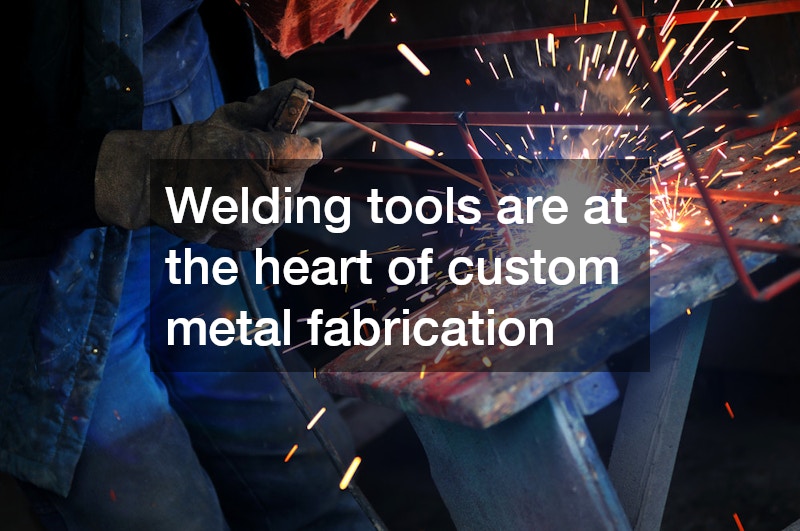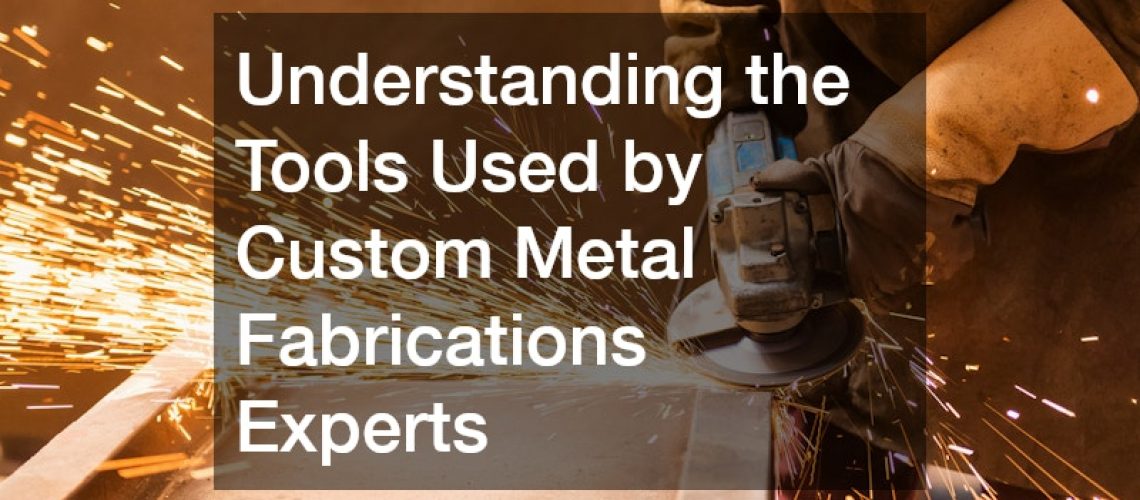Explore the various tools utilized by experts in custom metal fabrications, focusing on their functions and importance in the fabrication process.
What Are the Essential Tools for Metal Fabrication?
In any custom metal fabrication shop, certain tools are considered essential for performing various tasks effectively. Shears, for example, are widely used for cutting sheet metal into different shapes and sizes.
They can be mechanically or manually operated, providing versatility for both small-scale and large-scale projects.
Bending machines are another critical tool in the metal fabrication process, allowing for the shaping of metal into specific angles and curves that meet design specifications. These machines can handle a range of thicknesses and materials, integral for producing everything from simple brackets to complex structural components.
Welding equipment is perhaps the most vital tool in any metal fabrication operation, as it enables the joining of two or more metal pieces to create a unified structure. The choice of welding technique, whether MIG, TIG, or stick welding, can vary based on the project requirements and the type of metals being used.
How Do Cutting Tools Impact the Metal Fabrication Process?
Cutting tools play a pivotal role in determining the accuracy and quality of the finished metal product. Plasma cutters, for instance, utilize an accelerated jet of hot plasma to cut through conductive metals with precision. This method is particularly beneficial for intricate designs and sharp curves that traditional cutting methods may not achieve effectively.
Laser cutters also represent a significant advancement in cutting technology, allowing for incredibly precise cuts that minimize material wastage. The high-energy laser beam can cut through thin and thick materials alike, making it an invaluable tool for modern metal fabrication experts who strive for perfection.
The choice of cutting tool can drastically affect the workflow and overall efficiency of a fabrication project. Advanced cutting techniques reduce the time spent on each operation, thus enhancing productivity while ensuring that the quality remains uncompromised.
What Role Do Welding Tools Play in Custom Metal Fabrication?
Welding tools are at the heart of custom metal fabrication, providing the means to create strong, durable joints between metal components. The selection of the appropriate welding tool often depends on the materials being joined and the specific requirements of the project, such as thickness and application.
Specific techniques like TIG welding are favored for their ability to produce clean and precise welds, especially in stainless steel and aluminum applications. On the other hand, MIG welding is preferred for its speed and efficiency, making it ideal for larger-scale projects where time is a crucial factor.
Ultimately, the effectiveness of these welding tools impacts the structural integrity and safety of the finished product, underscoring the importance of expertise and the right equipment in metal fabrication processes.
What Advanced Technologies Are Being Used in Metal Fabrication?
Advancements in technology have significantly transformed metal fabrication, leading to increased efficiency and capability in production. CNC (Computer Numerical Control) machines, for example, allow for automated, precise cutting and shaping of materials based on digital designs. This technology reduces human error and elevates the quality of precision machining.
Robotic automation is another revolutionary addition to the metal fabrication industry, enhancing production capabilities while allowing for complex operations that human operators might find tedious or too risky. Robots can perform repetitive tasks with high precision, improving turnaround time on projects.
The integration of these advanced technologies not only streamlines operations but also allows custom metal fabrication shops to take on more intricate designs and projects, catering to a wider range of client needs and pushing the boundaries of what is possible with metal fabrication.
How Do Finishing Tools Enhance the Quality of Metal Products?
Finishing tools are essential for achieving a professional look and feel on metal products. Grinders, for instance, are commonly used to remove burrs and imperfections that may occur during cutting or welding, ensuring that the surface is smooth and free of flaws. This attention to detail is crucial for both aesthetic and functional reasons.
Polishers also play a significant role in the finishing process, helping to improve the appearance of metal surfaces and enhance corrosion resistance. A well-polished product not only looks more appealing but also has a longer life span, making finishing tools a vital part of the fabrication workflow.
By utilizing these finishing tools effectively, custom metal fabrication experts can elevate the quality of their work, leading to a higher level of satisfaction for clients and end-users alike. The results speak volumes about the craftsmanship and detail-oriented approach that these professionals employ in their work.
The tools used by custom metal fabrication experts are crucial to the success of their projects. From essential cutting and welding equipment to advanced technologies and finishing tools, each plays a significant role in crafting high-quality metal products. Understanding these tools can help clients appreciate the craftsmanship and precision that go into metal fabrication, illuminating the intricate processes behind their final products.


